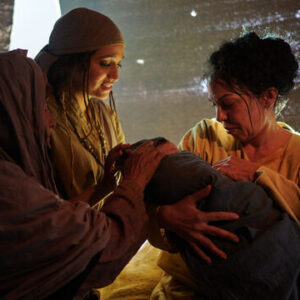War is a horrible thing! It ruins homes, destroys nations, and causes years of hatred. Our country has been involved in many wars since its founding. When we look at lists of the fatalities from each of the wars, the sum is a staggering 1,300,000 soldiers. Yet the United States has made bold efforts to recognize the sacrifice made by our brave fallen heroes. There are countless memorials commemorating their valor. Honor guards are stationed at cemeteries, and parades and holidays are set aside to help us refocus on the tragedy of war.
a horrible thing! It ruins homes, destroys nations, and causes years of hatred. Our country has been involved in many wars since its founding. When we look at lists of the fatalities from each of the wars, the sum is a staggering 1,300,000 soldiers. Yet the United States has made bold efforts to recognize the sacrifice made by our brave fallen heroes. There are countless memorials commemorating their valor. Honor guards are stationed at cemeteries, and parades and holidays are set aside to help us refocus on the tragedy of war.
An interesting parallel can be drawn between our nation’s wars and the battle taking place in our abortion clinics. The number of fatalities makes a fascinating comparison. In only 40 years since Roe v. Wade, the number of abortion casualties is near 56,000,000. There is also a shocking absence of recognition for these tiny, unarmed heroes who have given their lives for no cause whatsoever. There are no honor guards or parades, only back alley dumpsters and a paper record.
Yet the sin of abortion is not new in the history of mankind. We can go all the way back to the book of Exodus and discover the first abortions mentioned in Scripture. A new pharaoh sat on the throne of Egypt who knew nothing of Joseph or his gallant work among the Egyptians. Instead he was more concerned about Joseph’s descendants who had “become even more numerous” (Exodus 1:10) and now proved to be a threat. At first Pharaoh increased the workload of these slaves, yet that did little, and they continued to grow in strength. Finally he issued a decree for the Hebrew midwives: “When you help the Hebrew women in childbirth and observe them on the delivery stool, if it is a boy, kill him; but if it is a girl, let her live” (1:16). We call that abortion, infanticide, and murder!
Yet there were two midwives named Shiphra and Puah who refused to obey the edict. “The midwives, however, feared God and did not do what the king of Egypt had told them to do; they let the boys live” (1:17). Regardless of the consequences, they refused to follow the despicable order they were given. “So God was kind to the midwives and the people increased and became even more numerous. And because the midwives feared God, he gave them families of their own” (1:20,21).
The subject of civil disobedience is difficult for the Christian to approach. On the one hand, God tells his people that obedience to the government, whether Christian or not, is necessary. Jesus paid his taxes to an evil government. Daniel and Joseph served faithfully in heathen governments. Yet there are times in Scripture when God’s people disobeyed orders that forced them to go against God’s higher laws. Shiphra and Puah refused to commit abortions. When Daniel was forbidden to pray, he “got down on his knees and prayed . . . just as he had done before” (Daniel 6:10). When Shadrach, Meshach, and Abednego were ordered to bow down to an idol, they told the king, “We will not serve your gods or worship the image of gold you have set up” (Daniel 3:18). When Peter and John were ordered by the Sanhedrin to stop their preaching, they answered, “We cannot help speaking about what we have seen and heard” (Acts 4:20). And when they were arrested a second time for the same “crime,” Peter and John answered, “We must obey God rather than men!” (Acts 5:29).
Have you ever considered how you might react if you were put into similar situations? It’s a difficult question. None of these Bible heroes could have expected what happened, yet they were all ready to stand up for the Lord. There may come a day when we must boldly place our lives on the line and declare that God’s laws take precedence over man’s. Are we prepared? Are our children ready to do the same? May God give us the same strength as these Bible heroes so we too can boldly stand and proclaim our allegiance to our Lord and our Savior!
Prayer thought: Pray that God would give you the wisdom to discern if and when civil disobedience is necessary.
